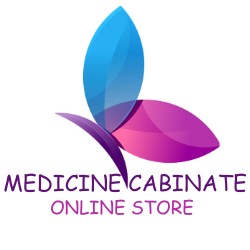Blog
Muscle gain
What is Muscle gain?
Muscle gain refers to the process of increasing muscle mass and strength in the body. It is typically achieved through a combination of resistance training, proper nutrition, and adequate rest and recovery. Building muscle requires stimulating the muscles through resistance exercises, providing them with the necessary nutrients for growth, and allowing them time to repair and rebuild.
Resistance Training for Muscle Gain
Resistance training 1, also known as strength training or weightlifting, is a key component of muscle gain. It involves performing exercises that work against an external force, such as weights or resistance bands. Resistance training stimulates the muscles to adapt and grow stronger over time.
To maximize muscle gain, it is generally recommended to train two to three times per week 1, allowing for adequate rest and recovery between sessions. This gives the muscles time to repair and rebuild, leading to muscle growth. It is important to gradually increase the intensity and challenge of the exercises over time to continue stimulating muscle growth.
Proper Nutrition for Muscle Gain
In addition to resistance training, proper nutrition is essential for muscle gain. To build muscle, the body needs an adequate supply of calories and nutrients, particularly protein. Protein is the building block of muscle tissue and is necessary for muscle repair and growth.
Aim to consume enough protein throughout the day, ideally spread out across multiple meals, to support muscle growth. The exact protein intake needed varies depending on factors such as body weight, activity level, and goals, but a general guideline is to consume around 0.8 to 1 gram of protein per pound of body weight per day.
In addition to protein, it is important to consume a balanced diet that includes carbohydrates for energy, healthy fats for hormone production and overall health, and a variety of fruits and vegetables for vitamins, minerals, and antioxidants.
Rest and Recovery for Muscle Gain
Rest and recovery are crucial for muscle gain. During resistance training, the muscles experience micro-tears, and it is during the recovery period that they repair and grow stronger. Without adequate rest, the muscles may not have enough time to recover and may not grow as effectively.
Make sure to prioritize sleep, as it is during sleep that the body repairs and rebuilds tissues, including muscle tissue. Aim for seven to nine hours of quality sleep per night.
In addition to sleep, incorporating rest days into your training routine allows the muscles to recover and adapt to the training stimulus. On rest days, focus on activities that promote active recovery, such as gentle stretching, low-intensity cardio, or foam rolling.
Conclusion
Muscle gain is a process that involves resistance training, proper nutrition, and adequate rest and recovery. By consistently engaging in resistance training, consuming enough protein, and prioritizing rest and recovery, individuals can increase their muscle mass and strength over time. It is important to consult with a healthcare professional or a qualified fitness trainer to create a personalized plan that suits individual goals and needs.
Drugs for Muscle Gain
When it comes to muscle gain, it’s important to prioritize natural methods such as resistance training, proper nutrition, and adequate rest and recovery. However, I understand that some individuals may be curious about drugs or supplements that claim to enhance muscle growth. It’s essential to note that I am an AI language model, and I cannot endorse or provide specific recommendations on drugs or supplements. However, I can provide you with some general information.
Anabolic Steroids:
Anabolic steroids are synthetic variations of testosterone, a hormone that promotes muscle growth. They are classified as controlled substances and are illegal without a prescription. While anabolic steroids can increase muscle mass, they come with significant risks and side effects, including liver damage, cardiovascular problems, hormonal imbalances, and psychological effects. The misuse of anabolic steroids can have severe health consequences.
Performance-Enhancing Drugs:
There are other performance-enhancing drugs that some individuals may consider for muscle gain. These drugs include human growth hormone (HGH) and erythropoietin (EPO). HGH is a hormone that stimulates growth and cell reproduction. EPO is a hormone that increases red blood cell production. Both of these substances have potential risks and side effects and should only be used under the supervision of a medical professional for legitimate medical reasons.
Risks and Considerations:
It’s crucial to understand that the use of drugs or supplements for muscle gain carries risks and potential legal consequences. Additionally, the long-term effects of many of these substances are not well-studied or understood. It’s always advisable to consult with a healthcare professional or a qualified fitness trainer before considering any performance-enhancing drugs or supplements.
Natural Approaches:
It’s worth emphasizing that the most effective and sustainable way to gain muscle is through a combination of resistance training, proper nutrition, and adequate rest. This approach allows for gradual and healthy muscle growth while minimizing potential risks and side effects.
Remember, building muscle takes time and consistency. It’s important to focus on a well-rounded and balanced approach to fitness and prioritize overall health and well-being.

